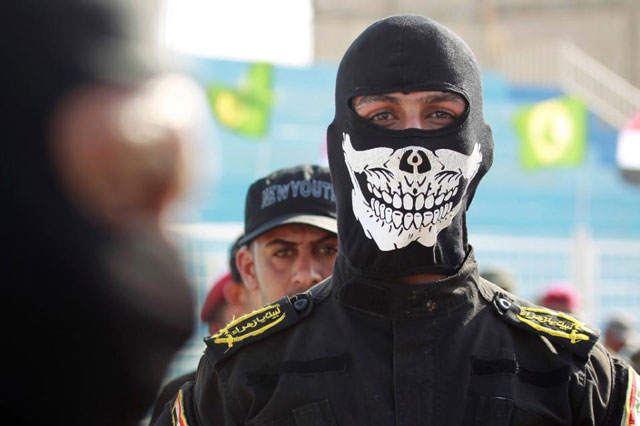
Iraq welcomed the creation of the new cell as a chance to help harmonise often competing efforts in the fight against the Islamic State (IS) extremist group.
"It's a committee coordinating between the four countries, with representatives of each country, in the field of military intelligence and aimed at sharing and analysing information," Saad al-Hadithi, a spokesman for Prime Minister Haider al-Abadi's office, told AFP.
He said the cell would focus on "monitoring the movements of terrorists... and degrading their capacity".
A statement from Iraq's Joint Operations Command said the deal with Moscow comes amid "growing concern over the presence of thousands of Russian terrorists engaged in criminal acts with Daesh (IS)."
Russia's Interior Minister Vladimir Kolokoltsev earlier this month estimated that 1,800 Russian citizens are fighting for IS, while reports have suggested Moscow is deliberately letting militants take their fight away from its own borders.
Hadithi would not say whether the new cell had already begun its work.
A Russian "military-diplomatic source" quoted by Russian news agencies said the centre in Baghdad would be managed on a rotational basis, with Iraq taking the lead for the first three months.
"The main functions of this centre will be collection, processing and analysis of information regarding the situation in the Middle East in the context of fighting the Islamic State group, distributing this information to the relevant parties and quickly forwarding it to the general staffs of these countries," the source was quoted as saying.
The move comes as Moscow boosts its military presence in neighbouring Syria, deploying more troops and warplanes to an air base along with new arms deliveries to President Bashar al-Assad's regime, a longstanding ally.
The United States has a $500-million programme to train and equip vetted moderates recruited from among the rebels fighting Assad, but it has faced repeated setbacks.
Washington's strategy in Iraq, built on an air campaign and the deployment of several thousand military trainers and advisers, has also come under increasing fire as failing to produce results.
Moscow has sold fighter jets and weaponry to Iraq but has taken the back seat as Iran and the US-led coalition — which also includes France and Britain — often competed to be Baghdad's top partner in the war against IS.
A decades-long backer of the Damascus regime, Moscow has steadfastly supported Assad throughout four and a half years of a conflict that has killed more than 240,000 people and triggered the worst migrant crisis in Europe since World War II.
Western powers have recently softened their stance categorically rejecting a role for Assad in any political solution to the conflict in Syria.
Abadi's spokesman said enhanced intelligence cooperation would positively affect operations against IS, which proclaimed a "caliphate" straddling Syria and Iraq last year.
"Having a broader base of intelligence thanks to cooperation with these three countries as well as with the coalition will give our security forces more opportunities to achieve victory in the war against terrorism," Hadithi said.
Without directly mentioning the Baghdad structure, Russian President Vladimir Putin said in an interview with CBS television that he was seeking enhanced coordination in the Middle East.
"We have proposed to cooperate with the countries in the region. We are trying to establish some kind of coordinated framework," he said.
On Monday, Putin will address the UN General Assembly in New York to outline his plans for Syria, notably the idea of expanding a coalition, which would include Assad's army, to fight IS.










1726222459-0/trump-(14)1726222459-0-270x192.webp)






COMMENTS
Comments are moderated and generally will be posted if they are on-topic and not abusive.
For more information, please see our Comments FAQ